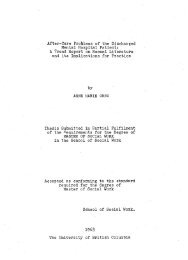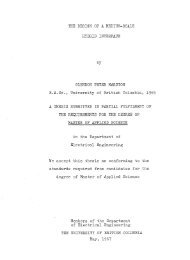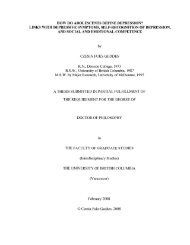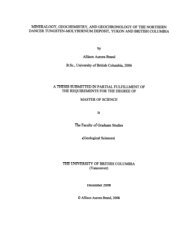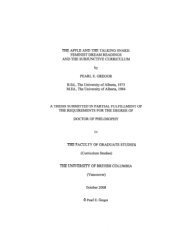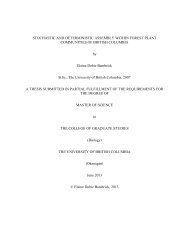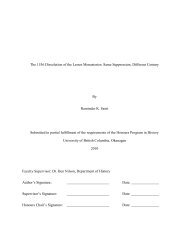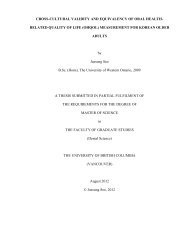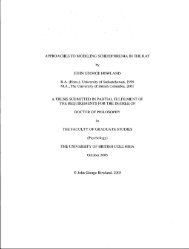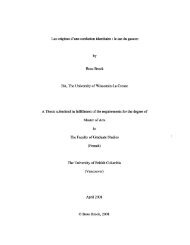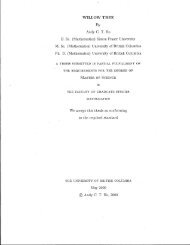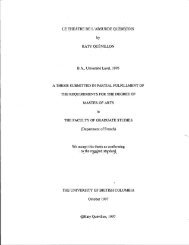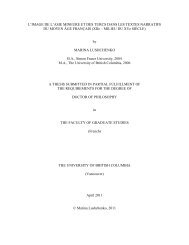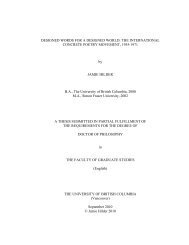A STUDY OF THE THEORY OF APPRAISAL FOR SELECTION By ...
A STUDY OF THE THEORY OF APPRAISAL FOR SELECTION By ...
A STUDY OF THE THEORY OF APPRAISAL FOR SELECTION By ...
You also want an ePaper? Increase the reach of your titles
YUMPU automatically turns print PDFs into web optimized ePapers that Google loves.
information.2 It is, however, the French Revolution that ushered<br />
in the modern concept of appraisal.<br />
Ernst Posner has argued that the main currents underlying<br />
the archival development of the nineteenth and twentieth<br />
centuries are derived from the democratic forces that were<br />
unleashed in France with the revolution. The developments are a<br />
reflection of the government's acknowledgement of its democratic<br />
accountability to its citizens.^The currents include the<br />
establishment of a national public archives administration, an<br />
acknowledgement of government responsibility to care for the<br />
documentary heritage of the past, and the government's commitment<br />
to the principle of public accessibility.3^The forces of<br />
centralization of control and state responsibility for archives<br />
seem to have introduced the modern practice of appraisal, which<br />
in turn propelled a theoretical discussion about methodology and<br />
justification that is still with us today.<br />
On June 25, 1794 (7 Messidor II), the Agence temporaire des<br />
titres was founded to appraise pre-revolutionary records.<br />
Appraisal was done by segregating the records into four broad<br />
subject categories that were defined by the state: useful,<br />
historical, feudal titles and useless.^Useful papers, which<br />
established the right of the state to confiscate property, were<br />
2 Luciana Duranti, "The Odyssey of Records Managers Part II:<br />
From the Middle Ages to Modern Times," ARMA Quarterly (October<br />
1989): 5.<br />
3 Ernst Posner, Archives and the Public Interest: Selected<br />
Essays by Ernst Posner, ed. Ken Munden (Washington, D.C.: Public<br />
Affairs Press, 1967), 25-26.<br />
32



